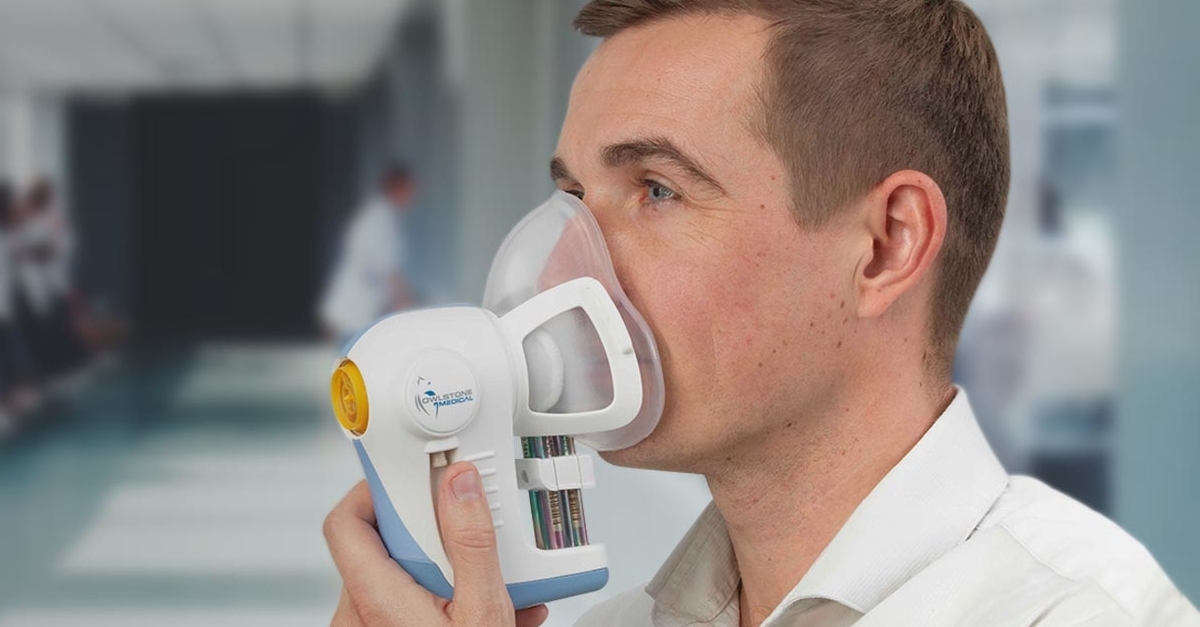Revolutionising cancer diagnosis with a breathalyser

According to government figures, almost half of cancers in England are diagnosed at a late stage, leading to increased cost for the NHS and ultimately patients not receiving the treatment they need.
Trying to address this, Addenbrooke’s Hospital in Cambridge, part of Addenbrooke’s NHS Trust, is currently testing a breathalyser that could potentially revolutionise cancer diagnosis in the UK.
The two-year trial is recruiting 1,500 participants made up of healthy individuals as well as cancer patients. The ‘Breath Biopsy Device’ has been developed by UK based company Owlstone Medical and Cancer Research UK.
As part of their normal metabolic processes, human body cells produce a range of volatile organic compounds (VOCs). As cancer can cause recognisable alternations in the pattern of VOCs, the test is designed to detect molecules that have emerged from the lung and into the breath. When using the device, participants will be asked to breathe into the cancer breathalyser for 10 minutes which collects VOCs and sends them to a laboratory in Cambridge for analysis.
Professor Rebecca Fitzgerald, lead trial investigator at the Cancer Research UK Cambridge Centre, said: “We urgently need to develop new tools, like this breath test, which could help to detect and diagnose cancer earlier, giving patients the best chance of surviving their disease. Owlstone Medical’s Breath Biopsy® technology is the first to test across multiple cancer types, potentially paving the way for a universal breath test.”
Billy Boyle, co-founder and chief executive of Owlstone Medical, said: “There is increasing potential for breath-based tests to aid diagnosis, sitting alongside blood and urine tests in an effort to help doctors detect and treat disease. The concept of providing a whole-body snapshot in a completely non-invasive way is very powerful and could reduce harm by sparing patients from more invasive tests that they don’t need.”
It is estimated that failure to obtain prompt diagnosis is the reason why only 12 per cent oesophageal cancer patients survive as long as 10 years. If this new treatment is found to be successful, it can save thousands of lives and save millions of pounds in healthcare costs.
If the technology proves to accurately identify cancer, the team hopes that breath biopsies could be used in future across GP practices to determine whether to refer patients for further diagnostic tests.
Dr David Crosby, head of early detection research at Cancer Research UK, said: “Technologies such as this breath test have the potential to revolutionise the way we detect and diagnose cancer in the future.
“Early detection research has faced an historic lack of funding and industry interest, and this work is a shining example of Cancer Research UK’s commitment to reverse that trend and drive vital progress in shifting cancer diagnosis towards earlier stages.”
Recognising the importance of early detection in improving cancer survival, Cancer Research UK has made research into this area one of its top priorities and will invest more than £20m a year in early detection research by 2019.
